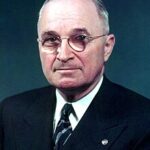The Historic Decision
On May 14, 1948, President Harry Truman made one of America’s most consequential foreign policy decisions. Just 11 minutes after Israel declared independence, Truman granted immediate U.S. recognition. This swift action defied strong opposition from his own State Department and military advisors. 📊 The decision came after months of intense internal debate about Middle East policy.
Political Courage Against Opposition
Secretary of State George Marshall and Defense Secretary James Forrestal warned against recognition. They feared alienating Arab nations and disrupting oil supplies during the Cold War. Truman faced enormous pressure from both sides of the debate. His decision reflected deep personal conviction about Jewish self-determination after the Holocaust. ⚠️ The president risked significant political capital on this controversial choice.
Moral Foundation of Recognition
Truman’s decision stemmed from moral imperatives rather than political calculations. The president felt America had a duty to Holocaust survivors seeking a homeland. He believed in the democratic principles that would guide the new Israeli state. 💰 Economic considerations took secondary importance to humanitarian concerns in this landmark presidential decision.
Impact:
Immediate International Consequences
Truman’s recognition of Israel immediately transformed Middle East dynamics and American foreign policy. The Soviet Union quickly followed with their own recognition, escalating Cold War competition in the region. Arab nations condemned the American decision and threatened economic retaliation. 🌍 This choice established the foundation for decades of complex Middle East diplomacy and conflict.
Long-term Strategic Alliance
The recognition created America’s most reliable democratic ally in the Middle East. Israel became a crucial intelligence partner during the Cold War era. Military cooperation strengthened both nations’ security capabilities over subsequent decades. 🔥 However, this alliance also entangled America in regional conflicts and complicated relationships with Arab states throughout the following years.
Historical Legacy and Modern Relevance
Historians widely praise Truman’s decision as morally courageous and strategically sound. The Israeli-American partnership has endured through multiple regional wars and political changes. This recognition demonstrated America’s commitment to democratic values and human rights. 📊 Modern presidents continue building upon the alliance Truman established, making this one of the most enduring legacies of his presidency.
